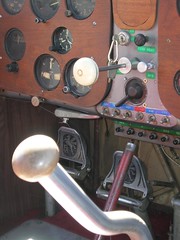
There's a bit of research that suggests teachers' views of learning and teaching are often complex and prone to revision. Today I find myself in this spot.
I attended Will Richardson's "What is Literacy?" Elluminate session with a group of outstanding, smart, and dynamic folks from around the country and world. While there was a stream of great ideas, thoughts, and comments both in the chat window and spoken, I still am feeling a bit empty albeit with a bunch of resonating questions. Talk about conficted. Maybe that's how I should feel.
This notion of literacy fascinates me and is important to me. Equally as intriguing is the intermix of skills and time-centric ones such as the 21st Century skills. I live, eat and breathe this stuff with 305 students on a weekly basis. I'm constantly assessing my content and student learning so that some day they may be able be thoughtful, curious, and good people.
So, what do I think is missing from this debate? More on that in a bit. First, just in case you were wondering, I think that literacy is a contextual understanding of some body of knowledge that evolves. For instance, being able to read, write, and communicate (and doing so critically) has mutliple measures of proficiency for most people. A pilot's fluency in reading, writing, and communication can be markedly different than a teacher, farmer, woodworker, machinist, or doctor. Skills including using technology enable people in each of these jobs to become proficient at what they do. Even at the base, there are levels of literacy such as reading blends, decoding words, and inferring meaning. Over a period of time, a career, or lifetime, I'd think our literacies evolve from experience, learning, and other factors. I also tend to think that literacies can and do merge with others and overlap. The interdisciplinary/cross-curricular movement comes to mind.
Even if we could all come to an consensus on a definition of literacy, pedagogy and learning are still at the most important root of what we do (after caring about students as people). Even the most eloquent, succint, or powerful definition of literacy will not make an impact if our pedagogy doesn't support it nor our views of student learning provide the foundation for students to achieve that literacy. I think this is akin to saying that elearning using precanned slide presentations and multiple choices tests is inherently better than classroom-based learning because it's using technology.
This has been a basic concern of mine for quite some time. And I was reminded of it when reading some conversations on AOPA's message forums. Time and time again, the basics bite us pilots. It's not that general aviation planes are scary things destined to fall out of the sky. Most GA accidents are caused by not attending the basics of flight: lift (you can't get too slow and low), fuel management (need enough), and flying into bad weather (man vs. nature). It's not programming the GPS, crosswind corrections, or traffic pattern management that's usually the culprit--it's inattention classic stick and rudder (basic flying skills) that stirs so much debate (and negative publicity). Similar metaphors of sports and medicine can be drawn too.
I would contend that education, and this debate, follows much of the same logic. It's the not the complex tasks that are daunting; rather, it's these stick and rudder skills that become obscurred. The proliferation of technology is a good example. Twitter, VoiceThread, wikis, blogs, and so many more cool and flashy tools are freely available at our browser's fingertips. In a matter of seconds and minutes we can publish to the world and have a global audience. But does the mere use of these tools equate to quality of teaching and learning that we would like to see? I don't believe they do.
I think a good look at the basics of pedagogy and learning sets the stage for literacy. Talking about how knowledge is constructed, the gatekeeper (teacher, student, network, etc) of that knowledge, and critically evaluating that knowledge lends itself to literacy discussions just as it would ensure that technology is not just used for its own sake. Learning and epistemology do much the same looking at how students are learning, learning modalities, and sources of that learning. Values of learning and knowledge are inherent, and really important, in these discussions.
Lastly a bit of an aside. A focus on teaching and learning will bring to light our fixation on "the evil standards". Standards themselves, I think, are good frames. It's how we teach (pedagogy), the quality of that teaching, how students learning and the quality of that learning, and a good look at epistemology that matters. Go ahead, take a look for yourselves and see if you think these standards can't be met using PBL, UbD, constructivism, connectivism, critical pedagogy, and lots of other high quality learning and teaching, with learning and teaching the very operative words in this sentence. And, I would argue, that's there is still a lot of room for fun and passion-based learning!
Thanks to Will Richardson for hosting a thoughtful conversation and all the attendees who pushed my thinking!
Photo Credit: Stick and Rudder, A1940 FairChild 24 http://www.flickr.com/photos/brraveheart/186951072/
 Twitter/ewargo
Twitter/ewargo GMail/Edwin Wargo
GMail/Edwin Wargo Technorati/ewargo
Technorati/ewargo






No comments:
Post a Comment